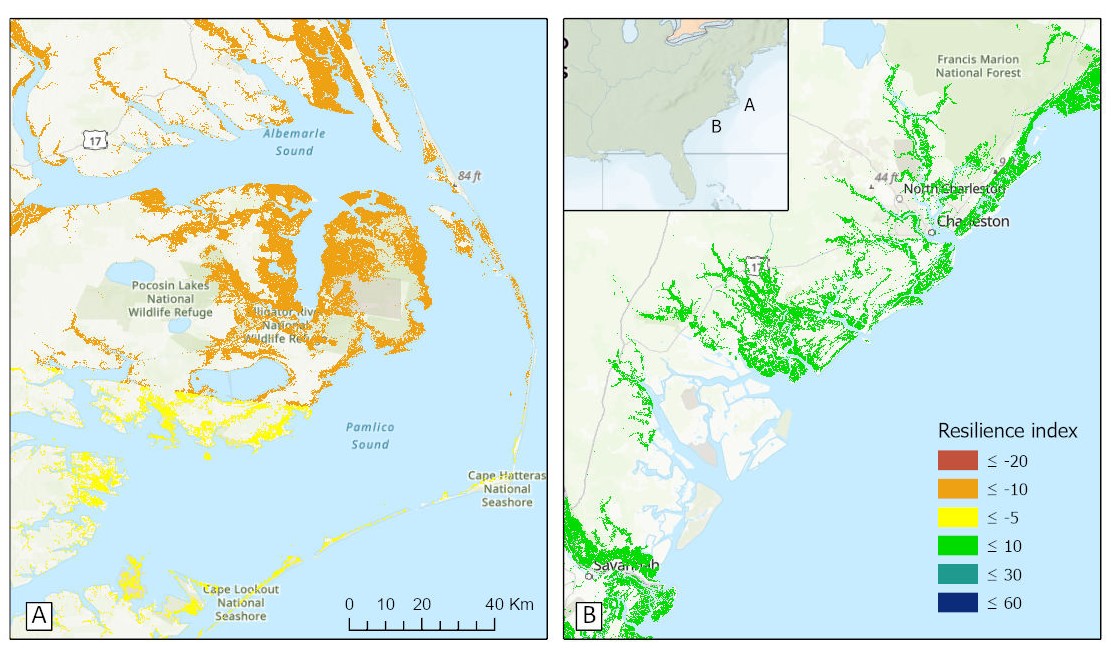The ORNL DAAC recently released this dataset from the Carbon Monitoring Systems (CMS) project by Holmquist, J.R., et al., (2021):
Resilience of Coastal Wetlands to Sea Level Rise, CONUS, 1996-2100
This dataset provides information about the resilience of tidal wetlands to sea-level rise under three climate future scenarios. With rising seas, regularly inundated tidal wetlands may persist by vertical accretion of sediments (vertical resilience) and/or by migrating inland (lateral resilience), but local and regional conditions constrain these options. This dataset provides a vertical resilience index (VR) for coastal wetlands at 30 m resolution across the continental US predicted for 2100. The VR index was computed for current sea levels, local tidal dynamics, and coastal topography. It was also calculated for future sea levels predicted for 2100 by three IPCC Realized Concentration Pathway (RCP) scenarios: 2.5, 4.5, and 8.5. Moreover, the VR index incorporates estimated rates of sediment accretion. The data include current and future tidal areas identified by mapping mean higher high water spring tide locations under the RCP scenarios. A shapefile outlining watershed units with tidal wetlands is included along with land cover classes for these areas for 1996 and 2011.
The NASA CMS program is designed to make significant contributions in characterizing, quantifying, understanding, and predicting the evolution of global carbon sources and sinks through improved monitoring of carbon stocks and fluxes. The System uses NASA satellite observations and modeling/analysis capabilities to establish the accuracy, quantitative uncertainties, and utility of products for supporting national and international policy, regulatory, and management activities. CMS data products are designed to inform near-term policy development and planning.
Additional data from Carbon Monitoring System (CMS) project and other relevant links can be found on the ORNL DAAC's CMS Project Page.
Citation: Holmquist, J.R., L.N. Brown, and G.M. Macdonald. 2021. Resilience of Coastal Wetlands to Sea Level Rise, CONUS, 1996-2100. ORNL DAAC, Oak Ridge, Tennessee, USA. https://doi.org/10.3334/ORNLDAAC/1839

